 @ Charles University, Faculty of Mathematics and Physics
@ Charles University, Faculty of Mathematics and Physics
|
Ondřej DUŠEK Ondřej Dušek is an assistant professor at the Institute of Formal and Applied Linguistics, Faculty of Mathematics and Physics, Charles University. His research is in the areas of natural language generation and dialogue systems. He has been focusing on neural-networks-based approaches to both generation and dialogue, as well as evaluation methods. He recently obtained an ERC grant titled Next-Generation Natural Language Generation, aiming at accurate and fluent generation through a synergy of neural networks and explicit symbolic semantics. Ondřej got his PhD in 2017 at Charles University. Between 2016 and 2018, he worked at the Interaction Lab at Heriot Watt University in Edinburgh, one of the leading groups in dialogue systems and natural-language interaction with computers and robots. There he co-organised the E2E natural language generation challenge and co-supervised a finalist team of PhD students in the Amazon Alexa Prize dialogue system competition. |
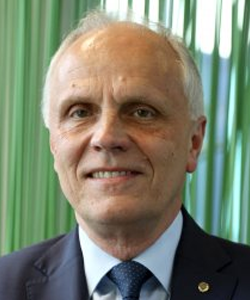 |
Prof. Andrzej JAJSZCZYK Andrzej Jajszczyk is Professor at the Department of Telecommunications, the AGH University of Science and Technology in Krakow, Poland and President of the Krakow Branch of the Polish Academy of Sciences. From 2011 to 2015 he served as the founding Director of the National Science Centre, a Polish research funding agency. He received Ph.D. from Poznan University of Technology in 1979. He was a visiting scientist at the University of Adelaide in Australia, Queen’s University in Kingston, Ontario, Canada, and Ecole Nationale Supérieure des Télécommunications de Bretagne, France. His major achievements in the theory of connecting networks include reformulation of Benes's theory of rearrangeable networks, complementing the theory by introducing a new class of repackable networks and proving nonblocking properties of a class of multiconnection networks. He also proposed some new structures of photonic switching networks and networks composed of digital switching matrices. He also contributed to the theory of network survivability and proposed new architectures and protocols for flow-aware networks. He is the author or co-author of 12 books and over 300 research papers, as well as 19 patents. He also published over 80 papers on research funding and higher education. He has been a consultant to industry, telecommunications operators, and government agencies in Australia, Canada, China, France, Germany, India, Poland, and the USA. He is 1998 IEEE Fellow, and was elected to the Polish Academy of Sciences and Academia Europaea. He was the founding editor of IEEE Global Communications and Editor-in-Chief of IEEE Communications Magazine. He was Associate Editor-in-Chief of CIC/IEEE China Communications. He held important positions in IEEE Communications Society, such as: Director of Magazines, Director of the Europe, Middle East and Africa region, Vice President – Technical Activities. In 2008, he received the Society’s Joseph LoCicero Award for Exemplary Service to Publications. The same year he received the Foundation for Polish Science Award. Professor Andrzej Jajszczyk is Vice-President of the European Research Council since 1 January 2021 and is responsible for the Physical sciences and Engineering domain.
|
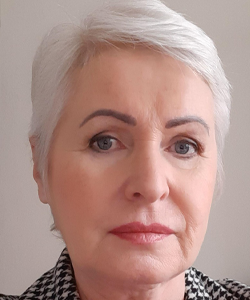
|
Darina MALOVÁ Darina Malová is a full Professor of Political Science, Comenius University in Bratislava. Since 2017 she has been contract teaching at Bologna University. She specialises in Slovak and Central European politics and European integration, especially related to the processes and impact of the EU Eastern Enlargement. Her research interests lie particularly in democratisation, transition, political institutions and nationalism. In 2009 she established the Centre of Excellence for Social Innovation at the Comenius University that focused on new ideas and good practices, including deliberative democracy, social and gender equality in Slovakia and the EU. She has published her works in a number of edited volumes and academic journals, including Problems of Post-Communism, European Journal of Political Research, West European Politics, and Political Psychology. She has previously been or is currently a member of the Editorial Board of the following journals: Austrian Journal of Political Science, West European Politics, Czech Political Science Review, Acta Politologica, Studia Politica Slovaca. She has also received several fellowships at the top international universities, including the Centre for European Studies, Harvard University (1993), European University Institute (1998), Netherlands Institute for Advanced Study (1994), WissenschaftsKolleg zu Berlin (1995), Illinois Wesleyan University in Bloomington-Normal (1999), Colorado College (2004), Karl. W. Deutsch Guest Professorship at Wissenschaftszentrum Berlin für Sozialforschung (2005). Among other professional activities, she has served as ERC panel member and Chair of the Committee for Social Science, at the Slovak Research and Development Agency.
|
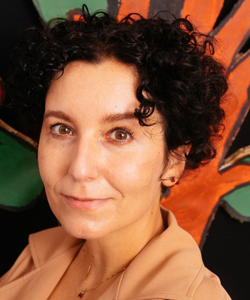
|
Justyna OLKO Justyna Olko is professor in the Faculty of “Artes Liberales” at the University of Warsaw and director of its Center for Research and Practice in Cultural Continuity. She specialises in ethnohistory, sociolinguistics, contact linguistics, language endangerment and revitalization as well as decolonizing research practices, with a special focus on Nahua language and culture. Olko is also involved in a program for revitalizing the Nahuatl language and works with researchers and activists committed to revitalizing endangered languages of ethnic minorities in Poland. Author of Insignia of Rank in the Nahua World (University Press of Colorado, 2014), co-editor and co-author of Dialogue with Europe, Dialogue with the Past. Colonial Nahua and Quechua Elites in Their Own Words (University Press of Colorado & University of Utah, 2018), co-author of Loans in Colonial and Modern Nahuatl. A Contextual Dictionary (Mouton de Gruyter, 2020), and co-editor (with Julia Sallabank) and co-author of Revitalizing Endangered Languages. A Practical Guide (Cambridge University Press, 2021).A recipient of Starting and Consolidator Grants from the European Research Council (Europe and America in Contact, 2012-2017; Consolidator Grant: Multilingual worlds – neglected histories, 2021-2026). Justyna Olko is a member of the Polish National Science Center Council (2018-2022) and was awarded the Knight’s Cross of the Order of Polonia Restituta (2013), as well as a Burgen Fellowship by the Academia Europaea (2013). In 2020 she became a winner of the Falling Walls Science Breakthrough of the Year in social sciences and humanities for “Breaking the walls between Academy and local communities in favour of linguistic diversity”. More information at www.jolko.al.uw.edu.pl. |
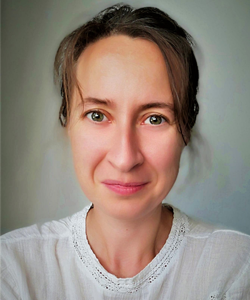
|
Slávka OTČENÁŠOVÁ Slávka Otčenášová, PhD. is a Seconded National Expert to the European Research Council Executive Agency, which she joined in 2018 as a member of the Consolidator Grant Call Coordination team. Concurrently, she is an associate professor at the Department of History at the Šafárik University in Košice, Slovakia. Her research areas include topics from historiography, collective memory and collective identity and Oral history. Prior to joining the ERCEA, she has conducted post-doc research stays at the Columbia University in New York, University Paris-Sorbonne, University of Vienna and Lorand Eotvos University and the Central European University in Budapest. |
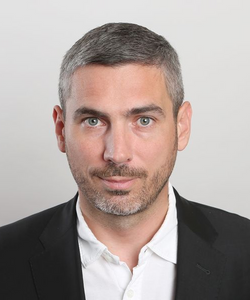
|
Ludovít PAULIS MUDr. RNDr. Ludovít Paulis, PhD. MPH. (1981) graduated from the Faculty of Mathematics, Physics and Informatics of the Comenius University in Bratislava in 2004 and in 2006 from the Faculty of Medicine of the Comenius University in Bratislava, where he was also awarded a PhD degree in 2007. In 2010, he defended the title of RNDr. at the Faculty of Natural Sciences of the University of P. J. Šafárik in Košice and also furthered his education in the domain of Public Health Management (MPH). He worked as a research assistant at the Slovak Academy of Sciences, project manager at the Faculty of Medicine of the Comenius University, post-doctoral student at INSERM in Montpellier, EU-researcher and later a visiting scientist at the Medical University of Charité in Berlin. Upon returning to Slovakia, he has been working at the Faculty of Medicine of the Comenius University and at the Slovak Academy of Sciences. Since its inception in 2017, he leads the company Alterras Therapeutics, which has been developing a drug that innovatively modulates the renin-angiotensin-aldosterone system, with an objective to treat diseases such as pulmonary harteric hypertension, or acute respiratory distress syndrome (ARDS) in adults. He is also very actively supporting the science and research. He is a member of the Executive Committee of the European Council for Cardiovascular Research. He has published 63 academic papers in Current Content journals, which attracted over 1200 SCI citations. As one of the youngest scientists, he received a prestigious Marie Curie-IEF grant from the European Commission and several awards such as the Volksbank Award for Education, the Guoth Award from the Slovak Medical Society or Honourable Mention in the Scientist of the Year Award nomination, in the category for outstanding scientific achievements, publishing activities, strengthening of cross border cooperation, development and international representation of young Slovak science. He is an Education Team member of the political party SaS and its expert in science and research. He was appointed State Secretary of the Ministry of Education, Science, Research and Sport of the Slovak Republic by the Government of the Slovak Republic on 21 March 2020. |

|
Zuzana REPTOVÁ
Zuzana Reptová is the National Contact Point for the European Research Council and the Marie Sklodowska Curie Actions. Working at the Slovak Centre for Scientific and Technical Information, she advises all potential applicants based at (or wishing to relocate to) research organisations in Slovakia. |
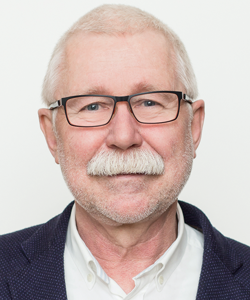
|
Pavol ŠAJGALÍK
Pavol Šajgalík is the President of the Slovak Academy of Sciences in Bratislava, Slovak Republic (since 2015), and simultaneously senior research scientist at the Ceramic Department, Institute of Inorganic Chemistry SAS (since 1979).
|
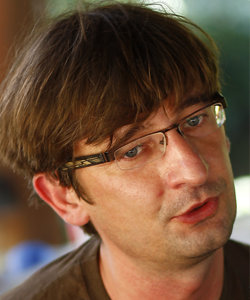
|
Ján TKÁČ
Ján Tkáč received a scientific degree DSc. in 2011. He performed three postdoctoral stays at Linkopings Universitet (Sweden, 2001-2003), at Lunds Universitet (Sweden, 2003-2006) and at Oxford University (UK, 2006-2008). During his stay at Lunds Universitet he was funded by prestigious Marie Curie Individual Fellowship and after his return back to the Institute of Chemistry, Slovak Academy of Sciences (2009) he was a holder of the highly prestigious European Research Council (ERC) Starting grant (2013-2017). The basic research within the group was also funded by two Initial Training network (ITN) grants. His main research interests are in the development of novel bioanalytical devices based on different detection platforms applicable in glycomics, biomedicine, diagnostics and biomarker discovery using a wide range of nanomaterials or nanoscale patterning protocols.
|

